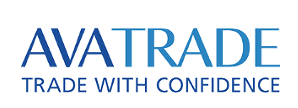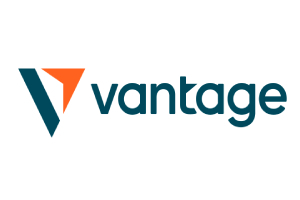ANOTHER HEART-TO-HEART TALK: DO NOT SHARE
Every so often, I will get the question as to why I trade. My interpretation of this question is not so much about why I trade and chose trading as a career but other people are asking me why they should trade and, by extension, what reasons I can provide via my own decision to assist them in their decision. While it is a simple question, it is also quite powerful and much more nuanced than people would at first believe, because the answer, at least to me, shifts depending on what sort of day I’ve had. Catch me on a bad day, and I might tell you that starting a Jim’s Mowing franchise might have been a better idea.
I understand that starting any new journey is difficult, and the difficulty with trading lies within the opaqueness of the path. Trading is a profession that relies upon uncertainty. No uncertainty, no risk. No risk, no potential for profit! This uncertainty is amplified by the level of bull shit associated with trading.
This merely adds to the noise that people who are new to markets have to deal with. But the uncertainty of markets and of trading can be managed—if you know how.
To circle back to the question as to why trade—the flippant answer might appear simply to be ‘money,’ and there is a degree of truth in that. If there were gold medals given out for the reward you get for the amount of effort you put in, then trading would certainly be up there with the best.
However, the answer is deeper than that, and it is probably deeper for everyone else who has either taken the leap into trading or is considering taking the leap. Back in the day, when I was looking at various vehicles, I had also considered property, but there seemed to be too many external constraints imposed upon you. I have never been a fan of games with too many rules.
Sadly for property investors, the rules of their game are changing dramatically. I do have great sympathy for property investors; since they were playing the game according to the rules they had been given. But, as is the whim of governments everywhere, instead of fixing the situation with careful strategic planning, they opt to blame the players.
But the players didn’t make the rules.
Property also didn’t appeal to my problem-solving nature, and it also involves people. People and the complexities they bring will feature heavily in my answer, and undoubtedly, they will feature heavily in the answers of other people who have chosen trading. In answering the question as to “Why trade?”
The Appeal of Trading
I’m going to try and look at it from two perspectives: the reasons and rationale I had back in the day but also in light of what I see in the world around me today. As such, I’m going to apply two different lenses to the same question. This will force the current version of me to see whether my logic was sound initially and whether the original decision would still hold true today.
The immediate appeal trading had to me was that it is unique in that it is an “eat what you kill” profession. If you do well, then that is the result of your skill and ability. If you do poorly, that is also the result of your skill and ability. This sort of environment appealed to me because I didn’t want to be held back by others. I’ve lost count of the number of times I’ve heard people complain about others in their teams holding them back in a large organization or a bureaucracy of any sort.
It is possible for people who underperform to go either unnoticed or to impact the performance of others. As a friend of mine wisely said many decades ago, “Cocking it up in a bureaucracy is like pissing yourself in a dark suit—nobody notices.” More importantly, nobody seems to care. That is true in the grand scheme of things that nobody notices, but you do because you are affected.
In my time working in bureaucracies, I was affected by others and wanted to find a way out. My future, and your future, is affected by the behavior of others. That’s the way large systems seem to work. Even worse is a situation I observed often, where captain up was actually promoted.
Individuals within organizations have an uncanny knack for rising to their level of incompetence and then making their incompetence everybody else’s problem. The cynic in me would suggest that anyone who thinks that companies will show them loyalty for their hard work and contribution is deluded. When I have these conversations with people about longevity within an organization and what the organization will do with their loyalty, I’m always apt to remind them of the story of Percy Spencer.
Spencer was an engineer working for Raytheon on cavity magnetrons during World War II. Cavity magnetrons is an essential component of radar. The story goes that one day, while building magnetrons; Spencer was standing in front of an active radar set and he noticed that the chocolate bar in his pocket had melted. Curiosity got the better of him, as it does with many engineers, and he experimented with a variety of foods such as popcorn kernels.
Spencer had inadvertently discovered the microwave oven Ron. Then filed a patent in 1945 for a microwave cooking oven. As they say, the rest is history. So, here’s a little quiz: Since 1945 and today, guess how many microwave ovens have been sold? If you guessed 1.7 billion, you would be correct. This raises the question as to how much Percy Spencer get for this discovery—$2. Not $2 per microwave oven sold—that’s $2 in total. That is corporate loyalty. And that was my observation of how loyalty within organizations was treated when I was back in a traditional workforce.
Trading vs. Traditional Work
I’m certain everyone has a similar story about how their contributions are either overlooked or someone else took credit for them. I’m lucky in that I knew a long time ago that my personality was not suited to academia. I wasn’t suited decades ago, and speaking to friends who are still within the university and academic system, I would not be suited now. I would probably be regarded as a cross between a ‘Attila the Hun’ and the Antichrist.
I would be in real trouble because I used to mark in red ink. It seems you cannot do that anymore, as it triggers certain people who have been told their entire lives that they are special.
The politics of organizations severely blunted my enthusiasm for them decades ago. I’m not certain what my response to working inside one of them would be now. Organizations stifle the individual. Trading does not! Trading allows those who work it out to flourish, free of the encumbrance of the idiocy of others. We operate in glorious isolation. But it’s not just the structure that I would struggle with as I did back then; it’s also the culture.
The Cultural Shift in Organizations
I regularly sent things by a friend who was an orthopedic surgeon. That is sent to him from the Royal College of Surgeons. You might think that your pick body would send you circulars and updates related to surgery, and various advances in medicine, and patient care. You would be as wrong as I was, since none of the ones I’ve seen refer to surgery. Instead, they are what I would call ‘woke tosh.’ The last one he forwarded was titled Identifying and Addressing Micro-aggressions.
It seems pulling someone up for making a mistake in surgery is a micro-aggression that is triggering for some, and requires the person to be counseled. Note, it is not the person who made the mistake who is counseled, but rather the person who called it out. I would have thought that if ever there was a place for vigilant and sometimes forceful monitoring of performance, it would be in the operating room.
The adult in me would think patient safety came above ‘snowflake’ feelings. Apparently not! This is not an isolated incident. As the one he sent me before that was titled Mandated Cultural Competency and Cultural Safety Training. I can see that coming in handy when you’re elbow-deep in somebody’s guts. These are as ridiculous as they sound, and I can’t be the only one who looks at the world through this lens and thinks that it has gone mad.
Trading: The Ultimate Equal Opportunity Profession
I’m lucky, though—I found a way out. I am all for fairness. It’s one of the things I pride myself on and it’s one of the things that drew me to trading. My profession is the ultimate equal opportunity employer. Markets don’t care who you are because they don’t know, and they will never know. They don’t know your age, so they can’t be ageist. They don’t know your gender, so they can’t be sexist. They don’t know your race, so they can’t be racist. They also don’t care if you don’t have a PhD from the London School of Economics.
You can be whatever you want! You can trade in any manner you see fit, from anywhere you want to. You can be surrounded by as many people as you want or as few as you want. But there is one thing markets judge people on, and that is how well they trade—the quality of the decisions they make and the behaviors they adopt.
Notice the emphasis on the individual, not the organization or the group. This is the final arbiter of your success, not some performance review committee or a jumped-up little wanker with an online MBA, or an HR department somewhere trying desperately to justify its existence. I found working in a normal job, way back when, very difficult. Now, it would seem like absolute hell, and I don’t know how people manage to do it.
I mentioned earlier that I had considered real estate as a wealth creation tool, but I also mentioned that it is an arena that is open to government influence and interference. I don’t like being interfered with in what I do. It seems as if every second day brings some sort of nonsense pronouncement from either a federal or state government. Layer on top of that, you have interference from tiny bureaucrats and local councils.
I read the other day that, in my local council (which I am assuming is average), it takes an average of 157 days to get any form of planning approval. In the state of Texas, it is mandated to be no more than seven days… Welcome to Australia. But this shows the level of interference that occurs in day-to-day life. It is interference that won’t go away and, from my observation, will only get worse. This raises the question as to how much government interference is there in trading? None. Not a single bit.
The government cannot suddenly say, “Look, it’s too hard for new investors to get into the market. Therefore, we are going to penalize those who are already in the market.” The government cannot step in and impede your progress outside of the normal requirement of paying tax.
The Limitless Upside of Trading
The final thing that drew me to trading, and would still do today, is the upside. There is no ceiling on what I can achieve other than what I can achieve. It did take me a little while to get this because it seems so unnatural that your life and any success it generated is determined not by a career path involving others and navigating whatever impediments they might put in your way, but rather by your own endeavors.
You write your own job description. You follow your own map. I do as well as my skill and emotions allow me to do. The only ceiling is the one I put in place.
Would I Choose Trading Again?
So, viewed again through the prism of the current century, would I select trading again? And here’s a language warning: Yes! Even more so now, as I observe the world around me becoming madder and madder and dragging sensible people along with it. But not only dragging them along but also stifling who they are and what they want to do.
So, I think a better question is not why did I pick trading in the past and whether I would pick it again. A better question for me to ask others when I look around the world as it is: Why isn’t everybody trading and taking advantage of the freedom it gives everyone?
Author: Chris Tate
Source: TradingGame.com.au
PS: This piece was transcribed and adapted from a video presentation [subheadings mine]
- Broker
- Min Deposit
- Score
- Visit Broker
- Award-winning Cryptocurrency trading platform
- $100 minimum deposit,
- FCA & Cysec regulated
- 20% welcome bonus of upto $10,000
- Minimum deposit $100
- Verify your account before the bonus is credited
- Fund Moneta Markets account with a minimum of $250
- Opt in using the form to claim your 50% deposit bonus
Learn to Trade
Never Miss A Trade Again

Signal Notification
Real-time signal notifications whenever a signal is opened, closes or Updated

Get Alerts
Immediate alerts to your email and mobile phone.

Entry Price Levels
Entry price level for every signal Just choose one of our Top Brokers in the list above to get all this free.



